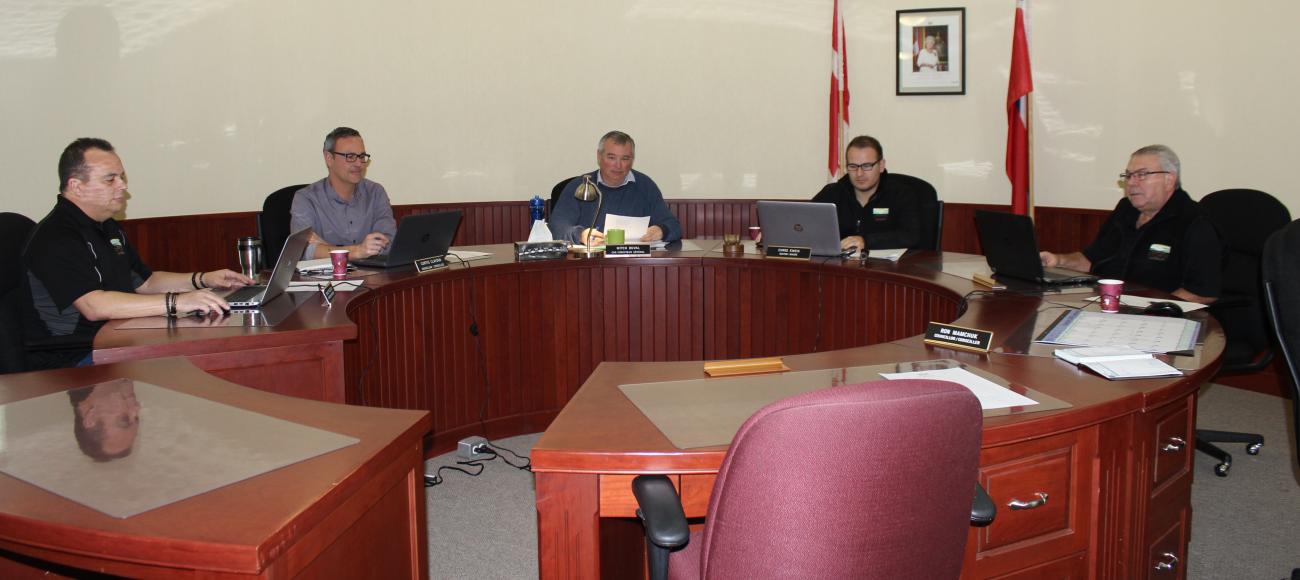Ritchot’s council held a brief council meeting on February 20 to review a number of items on their agenda.
Council gave first reading to amendments made to the Capital Development Fees Bylaw, which requires applicants for a subdivision or development of land to pay levies to the municipality in compensation for capital costs that will need to be incurred by the RM on or around those sites. These capital costs might include sewer and water, waste removal, drainage, public roads, connecting streets, street lighting, sidewalks, traffic control, and access and connections to existing services.
“Given all of the expansion growth in the RM and all of the utility projects that are and will be required down the road to accommodate that growth, the number-crunching came in at just over $10,650 per lot,” said CAO Mitch Duval.
The previous report from 2012 indicated a requirement of $8,050 in development fees per lot, which is what the bylaw has reflected since that time, with the exception of increases tied to the cost of living. Duval recommended to council that a somewhat aggressive approach is necessary to catch up to the current requirements. In order to do this, he’s proposing a 10 percent increase for the 2018–2019 budget year. It would then see a more drastic increase of 21 percent in 2019–2020. The RM would revert back to annual 10 percent increases for the next two years.
This will apply to the utility fees, which go into the RM’s utility reserve, as well as residential capital development fees, which go into the capital and recreation reserves.
“This is an upfront cost, whether [they’re building] in phases or all [at once],” says Duval. “It’s a part of [a developer] getting their commencement certificate to start building. The reason is because they are, for lack of a better word, sucking our infrastructure and need to contribute to future infrastructure.”
Council voted unanimously in favour of the increase.
Also on the agenda was an application by developer Alain Hiebert to subdivide the property at 721 Main Street in Île-des-Chênes, just off North Link Road, into 23 commercial condo lots. Council described these lots as useful for the construction of side-by-side commercial units that might cater to the needs of contractors, semi-truck owners, plumbers, and electricians who need storage space with an office.
At this stage, council has only been asked to approve the subdivision of lots. Council passed the application request unanimously.
“I think it’s a great opportunity to see in Île-des-Chênes,” says Mayor Chris Ewen. “We haven’t seen a commercial build like this in a while.”
Finally, council addressed bylaw enforcement. The municipality is currently serviced by Prairie Bylaw Enforcement, but council is looking at what other companies might offer to better meet the RM’s needs. Council discussed a switch to the Commissionaires.
“Based on a presentation of the Commissionaires, I feel that the municipality would get a bigger bang for their buck with their proposal,” says Duval. “They look at what can be done for our area and, because they’re headquartered in Winnipeg, it’s practical to have them come out upon request.”
Duval says that options are available for hourly or annual rates. He recommends that council consider contracting the Commissionaires on an hourly rate on a trial basis to see how they manage local bylaw enforcement.
“In discussion with a few other RMs that have them as their bylaw enforcement officers, they are very pleased with the services,” Duval says. “Unfortunately, we’ve built a relationship over the years with our current provider, but I think it’s time to change.”
Duval adds that first year costs would come in around $20,000, which is less than previous annual costs with Prairie Bylaw Enforcement if the RM continues to deal with complaints on a case by case basis. The motion to change saw a unanimous vote.


